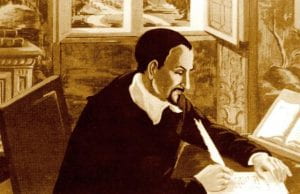The prudent [person] acts in the way [they] should, when [they] should,
and for the purpose [they] should.[1]
In the coming days, followers of the Abrahamic traditions will enter an intense spiritual time. Ramadan has begun for Muslims and will continue into May, and this week sees the start of both the Jewish Passover and the Christian Holy Week in preparation for Easter Sunday.
At this holy moment, I would like to talk about spiritual people, spiritual times, and spiritual wisdom in service to humanity, providing a constant reminder of something that is bigger than we are. Both religious and nonreligious people find a sense of something greater in community, or in humanity, or in the universe. Some may find this sense through love and compassion. For all of us, there is a place of connection beyond ourselves, beyond our own small egos. The celebration of mystery, and of the mystery of God for theists, is only possible if we individually and collectively dare to fully embrace our own mystery of connection to something greater.
Spiritual times are times for hope and trust, not for magical thinking. These are times to wonder and ponder, times for amazement and openness to surprise. For Christians, the time of the resurrection is a time to overcome our doubts and to end our exhaustion, our divisions, and our fears. This is done by committing to an abundant life, a life of love, joy, peace, and kindness, so that all might live with dignity.
For those celebrating this holy month, our faith gives us an opportunity to go deeper into our inner sanctuary, that holy place inside each one of us. This is the place where we feel connected to something greater and where we make sense of life, that place we call home.
Vincent de Paul and Louise de Marillac served humanity by caring for the most abandoned. Their life’s work was rooted in a profound sense of the mystery of God. They surrendered before this mystery. They trusted. Nothing of their lives and commitments can be explained if it is not connected to this experience of mystery, to their sense of spirituality, and their sense of transcendence and trust in Providence. Vincent often articulated his trust in Providence in terms such as these: “Grace has its moments,” “The things of God come about by themselves and […] wisdom consists in following Providence step by step,”[2] and “Allow yourself to be guided, and rest assured that God will be the one who guides you; but where? To the freedom of His children, to a superabundance of consolations, to great progress in virtue, and to your eternal happiness.”[3]
During this month, when billions of people celebrate their faith and stories of mystery and how they are called to be and connect in the world, I invite you to consider your own mystery. How does your grounding in something outside yourself give you strength and inspire you to care for others and our “common home”? I ask that you connect with the inner meaning of your life as you consider the larger social purpose of your existence, your work, your relationships, and the ways in which you contribute to the common good.
Saint Vincent never stopped recommending that his community—and we are his community today—pray for what is essential: hope. Asking for hope in Vincent’s Christian heart is asking for “the justice of God”; If we ask for that, “the rest of what we need will be given to us.”[4]
Justice, compassion, and solidarity can restore hope at all levels! May we all commit with pragmatic, realistic hope, a hope that is found in everything we say and do. This hope is a real source of joy and community, a joy of celebration and connection, committing with our faith or with our convictions during these spiritual times.
May DePaul be a community in which we all can struggle for and build hope together while resisting prophecies and actions rooted in destruction, division, and dissolution. May the celebrations of these holy days help us to keep our hope alive and to commit our entire selves to make our collective hope a reality, as Vincent always did with hope for the communities he served. We hope, we care, we struggle together because we are DePaul, a community of many faiths and abundant commitment to something greater.
Reflection by: Fr. Memo Campuzano, C.M., Vice President for Mission and Ministry
[1] Conference 35, “Prudence,” n.d., CCD, 11:42. Available at: https://via.library.depaul.edu/vincentian_ebooks/37/.
[2] Letter 704, “To Bernard Codoing, Superior, in Rome,” March 16, 1644, CCD, 2:499; and letter 720, “To Bernard Codoing, Superior, in Rome,” August 6, 1644, CCD, 2:521. Available at: https://via.library.depaul.edu/vincentian_ebooks/27/.
[3] Letter 2854, “To a Brother of the Mission,” May 28, 1659, CCD, 7:589–90. Available at: https://via.library.depaul.edu/vincentian_ebooks/32/.
[4] Matthew 6:33.

